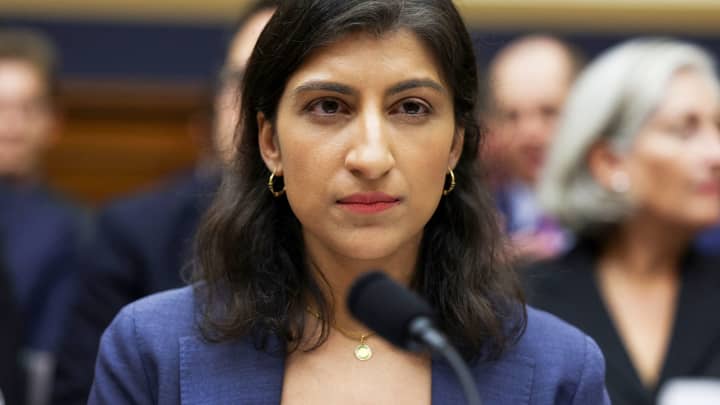
In Lina Khan's two years helming the Federal Trade Commission, her name has been most associated with one company: .
So far, that's largely been because of her viral Yale Law Journal article from 2017, titled " ." The paper made waves in the antitrust community because it argued that the modern application of antitrust laws has failed to capture the ways tech giants like Amazon are able to dominate in a digital world.
The article made Khan's name ubiquitous in antitrust circles and helped launch her on a path to becoming the . Once sworn into the role, Amazon from its antitrust investigations, pointing to her past criticism of its business. A similar attempt by Meta was in a separate case.
While the FTC has taken swings at major tech companies under Khan — like through its t proposed acquisition of Within Unlimited, a virtual reality fitness app maker, and a service — those who follow the agency have long anticipated a suit challenging Amazon's alleged monopoly power.
That lawsuit is now expected to come as soon as this month, and reported this week.
A challenge to Amazon's alleged monopoly could ultimately result in a breakup of the more than trillion-dollar business, should the FTC file the lawsuit and win in court.
On Aug. 15, the FTC held a so-called last rites meeting with Amazon, a source familiar with the matter, who was not authorized to speak publicly on the private discussions, confirmed to CNBC. are often a last step before commissioners vote on whether to file a lawsuit, giving a company the chance to voice its side.
In this case, however, a settlement and acceptable remedies were not discussed, the source said, confirming reporting by the Journal and Bloomberg.
The suit will likely target key elements of Amazon's retail marketplace business, including Fulfillment by Amazon, its logistics program, as well as pricing by third-party sellers on its website, according to the Journal, citing unnamed sources. Even before Khan joined the agency, FTC staff had begun interviewing Amazon sellers to learn about whether it used its dominance to hurt competition, .
The FTC declined to comment on the reports. Amazon earlier declined to comment on the Journal story.




